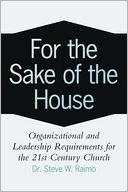 Greetings . . . and welcome to my blog site.
Greetings . . . and welcome to my blog site.
The articles, book reviews, and short posts will be of great benefit to you as you strive to be the best leader you can be in this 21st century . . . a time defined with great volatility and rapid change.
With an undergraduate degree in accounting, a masters in business administration, and a doctorate in strategic leadership (from the School of Global Leadership and Entrepreneurship at Regent University), my thirty years of organizational leadership and management experience in the United States and over-seas with multi-national corporations, small business, government, and non-profit organizations give me a distinctive perspective and expertise as an organizational coach and consultant.
You will find most articles and short postings on this site universally applicable (to any organization and any situation). However, they are written from a Christian perspective and written to challenge the Christian Church and church leaders. (compliments of Michelle Newell Photography)
As an ordained minister (and one who has served congregations in vocational and non-vocational ministry since 1976), I have a unique perspective of the organizational structure of church congregations and leadership competencies needed to support religious organizations.
The following has been taken out of print for revision. If you have questions, please contact me.
For the Sake of the House is written especially for those in church leadership or leadership in other religious organizations. However, it is important for anyone who is concerned about the Church of Jesus Christ and the impact we will have in the 21st century.
The message in this book is clear: times are changing, and we must change with them. The twenty-first-century church does and will continually face radical change and much uncertainty with undefined problems that require organizational models and leadership qualities and competencies far different from those that were successful in the twentieth century. It is our responsibility, as leaders of the church of Jesus Christ, to ensure we are adequately prepared and that those for whom we are responsible are also equipped as ministers of the gospel.
leadership qualities and competencies far different from those that were successful in the twentieth century. It is our responsibility, as leaders of the church of Jesus Christ, to ensure we are adequately prepared and that those for whom we are responsible are also equipped as ministers of the gospel.
From an organizational perspective, structures and designs do not just happen. It takes much time, much effort, and many talented people. The changes the church faces are different now; they are discontinuous and not part of any pattern. Even the smallest changes can make the biggest differences, even if they go unnoticed for a time. For leaders, this may be confusing and troubling. But with proper preparation and foresight, with strategies, correct planning, and implementation, the local church organization will continue to flourish. The way we organize will determine our effectiveness. We need to be missionally responsive, culturally adaptive, organizationally agile multiplication movements.
From a leadership perspective, leaders are not born; they are developed through formal and informal training and experience. Titles and/or positions do not mean leadership skills, traits, and competencies are inherent in the individual. The church needs authentic, transformational servant leaders as it faces constant change and uncertainty—leadership that is not mired in traditions of yesterday or weighed down by personal egocentricities.
If we want to enjoy more of the opportunities and experience less of the risks, we need to be able to scan for, read, and interpret information that will affect us individually and the church as a whole. Those who understand why changes come and strategically plan for the unpredictable while strategizing for a preferred future waste less effort reacting and spend more time investing in being relevant and missional.
Some of my articles published by other organizations and journals can be accessed through the following links: The Enrichment Journal, ChristianFutures.com, EmergingLeaders.com, and the Engstrom Institute.
